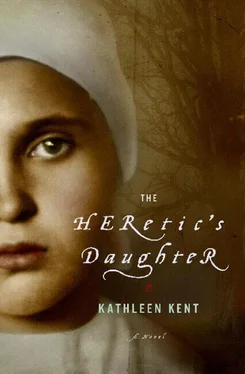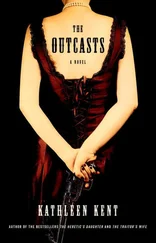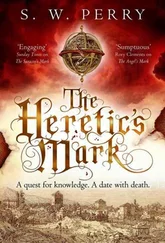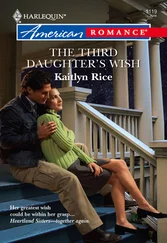Around sunset, as the flickering light flowed through the openings in the walls, Andrew opened his eyes and looked first at me and then at Tom. “What day is it?” he asked quietly.
Tom answered, “It is Saturday.”
Andrew drew his brows together as though calculating the days and said, “The doctor comes soon now?”
“Yes,” said Tom, his voice grinding and choked.
“He’ll take my arm,” Andrew whispered softly as though hearing it for the first time. Alarm sprang into his eyes and he said, catching his breath, “He’ll take my arm. Tom, he’s going to take my arm.” He grabbed at Tom with his left hand and held on tightly. “Don’t let him take my arm. I’d rather die.”
“Andrew,” I said, cradling his head tighter in my arms, the tears falling into my mouth. “The doctor said you’d die…”
“No,” Tom said, reaching for Andrew’s good hand, “You won’t die.” He looked at me defiantly and said again, “You won’t die, Andrew. I won’t let him take your arm. D’ye hear me?” He looked down at Andrew. “I’ll sit here all night and the next night and the next. I’ll look over you, Andrew. No one’s going to take your arm.” He held on to Andrew’s hand until Andrew fell back into his sleep and there he sat until the sheriff opened the door to let in the doctor. In one hand he carried a small leather bag and a belt. In the other he carried a small skinning knife and a cleaver.
He said loudly to the sheriff, “The light is going. I will have to work quickly. Stand here by the door in case I need you to hold him down.” The cell had grown quiet but for the sound of whispered prayers and some fragile cloth being torn into bandages. As the doctor moved into the cell I saw several of the younger women put their hands over their ears to block out the screams. My hands went protectively over Andrew’s eyes to shield him from the approaching doctor, and the anger that had plagued Tom came and bit me squarely behind the neck. The doctor turned to one of the women and said, “Bring me whatever water you have and then stand back.”
He started to kneel to take his place by Andrew but Tom held up his hand and said, “No. We don’t need you. You can go away.”
“Don’t be stupid, boy. Your brother is at death’s door, and unless the arm comes off, he’ll pass over that threshold for sure. Now, you can be brave for your brother’s sake by holding his other arm.”
“No,” Tom said more forcefully, and the doctor rocked back on his heels, no doubt thinking of the coins he would forfeit by leaving his work undone. He picked up the belt and looped it together, forming a small noose, and motioned to the sheriff. I heard a woman call out of the growing dark, “Let the boy die in peace.” The sheriff drew an agitated breath and, closing the door behind him, began walking towards us. I felt Andrew’s hand searching for mine and the anger twisted in my spine. I said, forcing the words from deep in my throat, “If you touch him, I’ll curse you.” There was a stirring in the straw as bodies pulled closer, straining to hear the outcome.
The doctor turned to me, his brows drawn down, “What did you say?” But he had heard what I had said as clearly as if I had shouted the words. It showed in the way he tensed and looked over his shoulder at the murky figures standing in the lessening light, their hair wild and disarrayed, their clothing soiled with human filth, some torn into shroudlike tangles. He looked back at me with uncertain eyes and saw a flame-headed, remorseless child who had been thrown into a cell for doing the Devil’s work. He began to gather up his things, but in all the world, there is no better whip against the diminishing effects of fear than the enlivening thoughts of coins in the purse, and so he paused and studied Tom again in a cautious manner. Tom sat poised with his fists balled in his lap, but for all his protesting he was only a boy. The doctor set his jaw and called to the sheriff to come so that he could finish up what he had interrupted his dinner to do.
I saw Tom look wildly around for something, some kind of weapon or stick, to keep the doctor at bay. His hand closed around the straw and he held it up to his face as though he had found some great treasure. The doctor had started to say to the sheriff, “Now, pull back these two and then grab hold of this one and be quick about it…,” when Tom drew back his arm, his good throwing arm, and let loose the weighted straw, hitting the doctor square in the chest and in the face. It was as though Tom had wounded him with a full measure of lead shot, so loud did the doctor swear and jump up and brush himself down. On his black great coat, the coat of his calling, and on his white linen shirt, were smeared dark and evil-smelling stains. All through the straw were the remnants of waste from women who, through illness or weakness from hunger, could not reach the slop buckets in time. Tom had only to reach a little ways to find it.
The doctor stamped his foot with rage and spit out, “You little bastard. Look what you’ve done.”
“Aye, that shit will never wash out.” We looked around, astonished at the strength in the voice and saw it was the old woman who had advised Goody Faulkner to keep her shawl from the sheriff’s wife. She was feeble and bent and had a ragged cough but her eyes were sharp and amused as they looked on the doctor. She opened her toothless mouth in laughter and said, “It’s the bile, you see? There’s never so great a stain as that which comes from the outraged body of a woman wronged. No, you’ll have to lop off a basketful of limbs to pay for a new coat such as that.” The doctor pulled away from her abruptly as though she were wearing plague sores.
The sheriff swung the door to the cell open and said, “You’d best go now. You’ll get nothing from this lot.”
The doctor grabbed his tools and turned once to say, “Your brother will be dead before the sun comes up.” We sat mute together over Andrew’s huddled body, too dazed to speak, and so the only answer to follow him out was the sound of the key being turned in the lock. I slept badly, in and out of waking from hour to hour, but whenever I opened my eyes I saw Tom kneeling next to Andrew, holding his hand and smoothing his forehead with a small rag or spilling a few drops of water into his mouth. Andrew continued to shake with fever and fell back into his troubled dreams. Every so often Tom would gently lift our brother’s sleeve and follow the progress of the red mark that crept upwards and upwards towards Andrew’s heart. Close to dawn on Sunday I woke to the sound of Andrew’s voice. I thought he was in his ravings, for Tom had leaned his head down to better hear. I crawled through the straw to be closer to them and I saw that Andrew’s eyes were queer and clouded. His lips were cracked and bleeding but his words were calm and orderly.
He lifted his head slightly and said, “Richard promised that we shall all go hunting again in the autumn. And that I shall have a turn at the flintlock, if I’m careful. Now I’ll have my arm to hold it and I will be as good a shot as Father.”
“You shall have a turn. And you shall bag the biggest ground hen in the colonies.” Tom smoothed Andrew’s hair back from his forehead and he smiled and closed his eyes again. His head slumped to the side and his breathing coarsened until I felt faint trying to slow my breathing to his. Sometime before the dark turned to light I fell asleep saying good-bye to Andrew. I had tried to do what Mother had told me to do. To tell him that I loved him. That he would be missed. That I was so very sorry that I could do nothing to save him or lessen his pain. I had taken his presence as a dreary constant, giving him no greater attention than I had given the livestock: there to be led about to do my bidding or to share in my labors. I was sorry at the end that I had not been kinder or more patient. And he was always so with all of us.
Читать дальше












